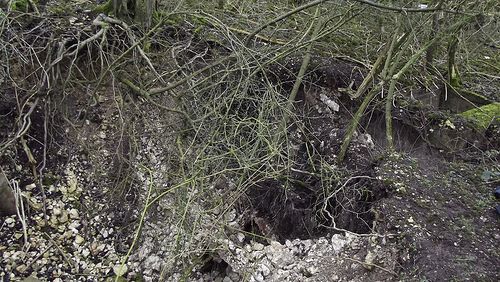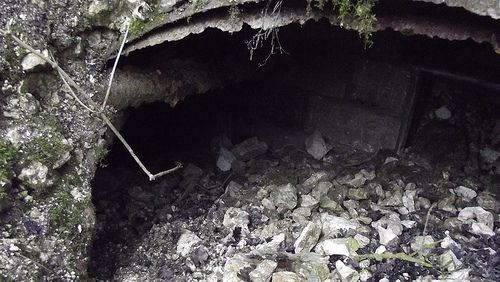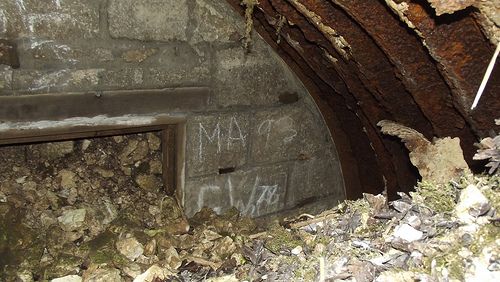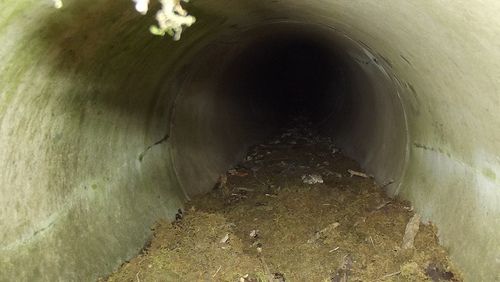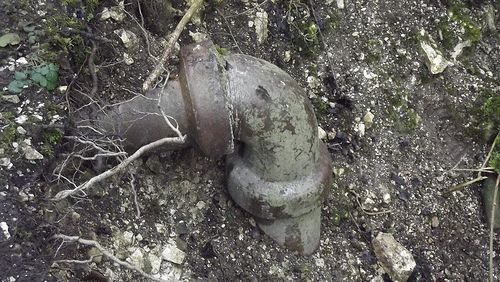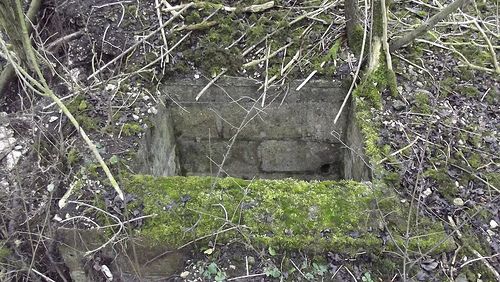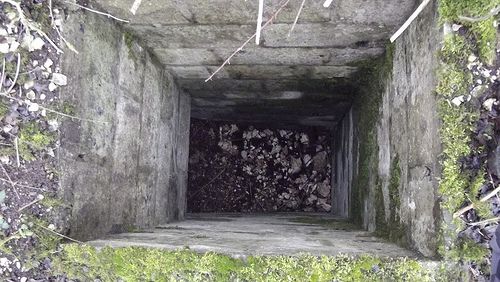The village of Walkington is 3 miles south-west of Beverley.
| Name | Occupation | Posted from | Until |
|---|---|---|---|
| Sergeant Bethal Taylor | School master |
Unknown | 03 Dec 1944 |
| Corporal Eric Jackson | Farmer |
Unknown | 03 Dec 1944 |
| Private Peter Thomas Birkhead | Draughtsman |
Unknown | 03 Dec 1944 |
| Private Edward Hanger | Paint manufacturer |
Unknown | 03 Dec 1944 |
| Private John Hanger | Paint manufacturer |
Unknown | 03 Dec 1944 |
| Private Jesse Micklethwaite | Engineer |
Unknown | 03 Dec 1944 |
| Private John Carr Whaley | Official on Agricultural Committee |
Unknown | 03 Dec 1944 |
The Patrol's first OB was thought to be in a chalk pit at Walkington Wold but it was decided it would be too easy to find so a second OB was built by the Royal Engineers.
This OB is located within a wooded area on the side of a steep valley. It lies to the North West of the village of Walkington.
The OB was easily found from the footpath due to the escape tunnel being visible. The OB had been dug into the chalk of a valley side 12 feet down. When the roof had corroded the weight of the chalk had brought the entire main chamber down. The main shaft and escape tunnel are still very much intact. It was found that when exiting the escape tunnel you would have not had much cover to make your escape.
The OB is deeper than normal with its floor level about 12 feet below ground. Concrete blocks were used instead of brick and the entrance shaft had built in ladder rungs made from 2 inch piping. The OB is 20 feet in length and 9 feet wide.
Two small vestibules at either end were created by concrete walls. The escape tunnel was made from concrete pipes and was about 14 feet in length and had a right angle bend about half way.
Looking for an Observation Post, approximately 250 feet away there, is a small depression in the ground. It looked like a small 2 man trench and had filled in over the years to a depth of a foot. This could have been natural as the view from this post was completely blocked by trees and vegetation but may not have been during the war.
Other physical remains nearby included an old drawer made from metal with a riveted handle. It looked like a wartime old metal desk drawer.
A nearby field was used as a mortar practice range and against this background noise the OB was blasted out of the chalk. Tail Fins still turn up during ploughing operations.
CART's Andrew Lennard-White has made this 2020 video of the OB:
Previously CART's Andy Gwynne made this in 2012:
Walkington Patrol
Targets would have included airfields in the vicinity included RAF Driffield and RAF Leconfield and a main barracks at Beverley.
Training was carried out at Bluestone Quarry and another pit close to Bishop Burton.
The training carried out at the Bluestone Quarry was with both the Beverley South and North Patrols and transport for the Units was provided by a Mr Tattershall, a William Hodgesons employee using the firms transport.
TNA ref WO199/3389
Hancock data held at B.R.A
1939 Register
Andy Gwynne
East Ridings Secret Resistance by Alan Williamson
Andrew Lennard-White
